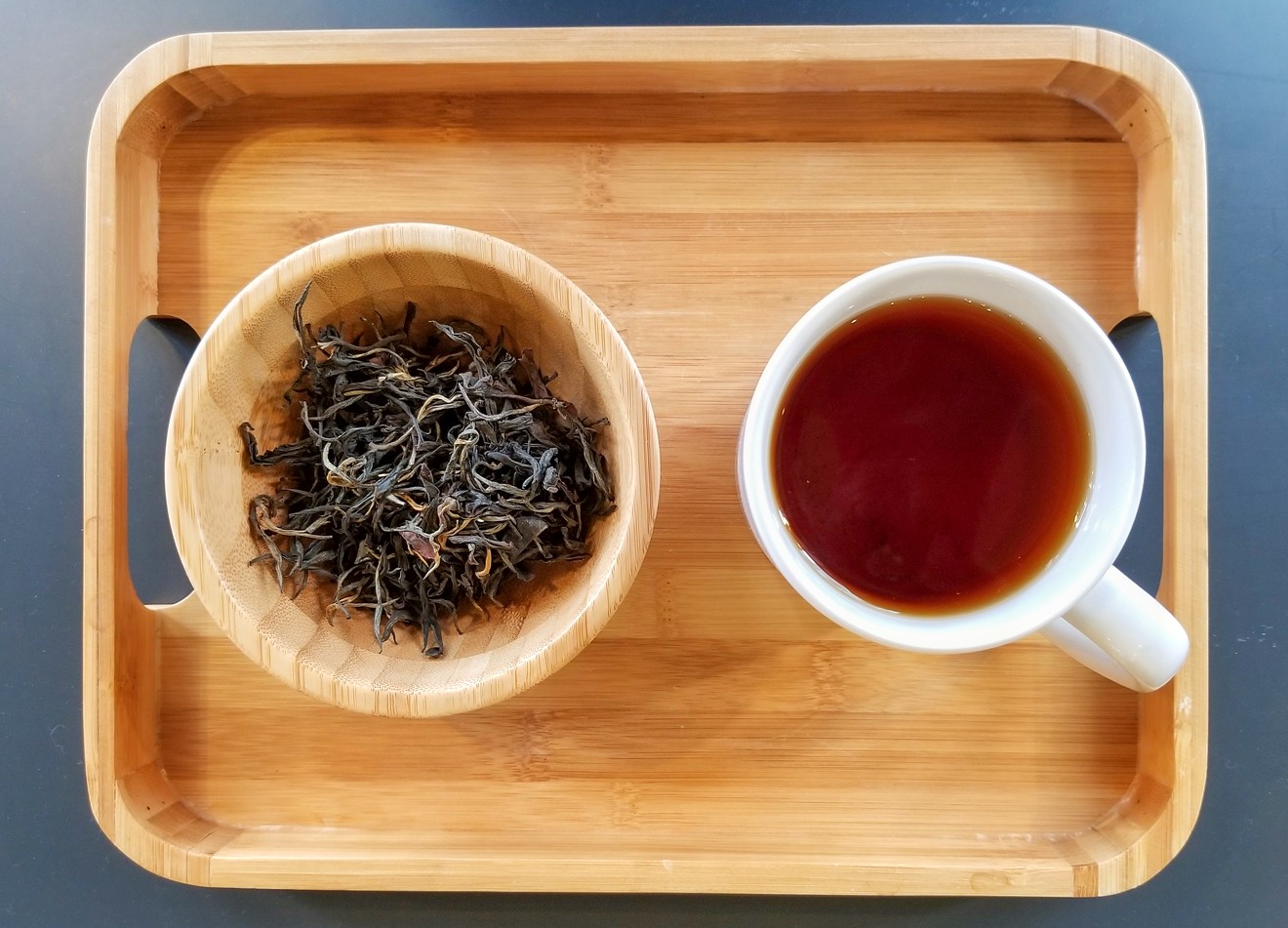It’s a peaceful, social drink.
In much of the rest of the world, tea fills the role that coffee serves in the U.S., but it does it in a way that presents a contrast to American habits and, frankly, a point of criticism where other societies can make of us.
Tea is the drink of commerce in the Middle East. Even a fraught negotiation is conducted as friends over tea. The French are openly disdainful of the American desire for to-go coffee, wondering how we have so little time that we can’t sit down to enjoy it.
Do not @ me with your stories of your coffee group. Starbucks will hardly build a new store without a drive-thru, and others of you are ordering on the internet.
Tea has meaning, maybe for none more than partners Brandon Friedman and TK Kamauf of Rakkasan Tea Company.
“I had never had hot tea in my life before Afghanistan, and I kind of fell in love with it over there,” Friedman says. “For us, drinking tea over in Iraq was always kind of a respite.”
Friedman joined the Army on Sept. 16, 2001, “which was kind of a crazy time,” he says.
By March 2002, he was leading a platoon with TK as a machine gunner in Afghanistan. Their brigade — the 3rd of the 101st Airborne Division — was known as the Rakkasans, the old Japanese word for parachute (literally “falling down umbrellas”). They got to know each other while clearing caves during Operation Anaconda.
The 101st didn’t manage to miss out on much combat during the war on terror; so the partners’ friendship grew during the Iraq War, as did their love for tea.
“Combat in Iraq and in Afghanistan was chaotic and it was, at times, pretty horrible, and to me the tea represented an oasis in the desert. It’s so important in combat: normalcy. You just crave normalcy. You just want to be normal for five minutes,” Friedman says.
He left the service after Iraq, eventually taking Obama administration appointments in Veterans Affairs and the Department of Housing and Urban Development. TK stayed in for two more tours after becoming a Green Beret. TK goes by TK. Call him TK.
“I was a squad leader, and we’d do night patrols. If we’d see someone up late at night, we’d knock on their door, they’d invite us in, we’d take our equipment off and they’d make tea. We’d stay for maybe 30 minutes. It was like nothing outside the walls existed anymore,” TK says.
Friedman sees the market for Rakkasan’s high-end, loose-leaf teas as expanding rapidly in America. As with other luxury goods, once consumers learn about a product, they start to care about its origin, the people who made it and its story.

“It’s a teachable moment for people if they say, ‘Well, that place hasn’t been in conflict in 50 years.’ If you’re asking that question, you don’t understand conflict and what it does to a community,” Brandon Friedman says.
courtesy Rakkasan Tea Company
The current lineup features teas from Rwanda, Nepal, Sri Lanka, Vietnam, Laos, Colombia and Ethiopia. Just finding and transporting the teas can be a challenge.
A Peace Corps alum the partners know found small tea farms in Guatemala. An initial request for samples was met with, “How would we do that? Multiple buses and relatives in the capital may be required.”
Vietnam is known for indiscriminate use of pesticides; so Rakkasan’s Vietnamese offering was identified by a local expert who tests for chemicals and heavy metals and limits sourcing to small farms with 400-year-old trees.
Trading with post-conflict countries is a conscious choice to promote peace and economic recovery in places that need both. It’s also a way for Friedman and TK to use their military experience in their business.
“It’s a teachable moment for people if they say, ‘Well, that place hasn’t been in conflict in 50 years.’ If you’re asking that question, you don’t understand conflict and what it does to a community,” Friedman says.
The partners admit there are challenges for a U.S. tea company where the drink retains a “doily” image.
“My introduction to tea was sitting around a little gas heater with local fighters wearing bandoliers of AK-47 rounds drinking tea,” Friedman says.
He and TK think Rakkasan can be a part of changing tea’s American image.
That change is going to require more places to enjoy high-end tea. When Starbucks paid a king’s ransom for the Teavana chain and then let it die, America’s best retail experiment in high-end tea vanished.
Rakkasan is not on the verge of opening in 50 malls, but look for a brick-and-mortar retail experience soon with a place to enjoy a cup.
They’re also working on a technological solution to the … hassle is the wrong word … involved process of steeping loose-leaf tea. Rakkasan is presently online and at select North Texas retailers.
“Coffee is a very solitary drink. It’s something you use to wake up on the way to the office. ‘Don’t talk to me until I’ve had my coffee,’ right? Tea, at least in other countries, is the opposite of that. It’s very communal and social,” Friedman says.
Maybe there is a little peace and prosperity in a cup of tea.














